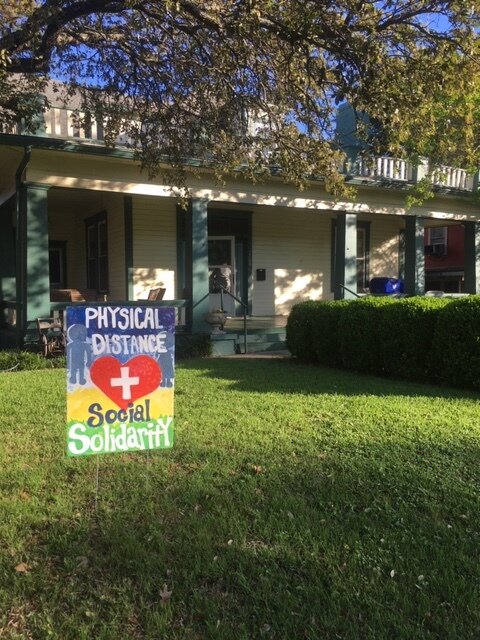A novel coronavirus has brought great suffering to thousands and will eventually reach us all, and many of our communities have or will soon reconsider many of our practices of gathering together and sharing communion in various ways. We live, love, feel and worship in our bodies, and we are becoming keenly aware that we are putting these bodies at risk by our proximity. Many of us have built our lives in Christian community as a direct response to the isolation and de-sensitization of the world around us. And it can be that hearing directives to “self-isolate” might seem anathema to the values we have adopted in light of Christ’s teachings.
“We may not get to breathe the same air for a time, but the Spirit of God we share will certainly breathe on each one of us. ”
In this moment, we are not defined by what we are suspending but rather by what we will be unable to suspend. Many of us will take extra precautions, making ourselves scarce if we should feel symptomatic or exposed to those who are. The most vulnerable among us may be visited less frequently, and by fewer of us as a precaution. But, inasmuch as we have been formed to love one another, we will find new ways to be present to one another. And to our neighbors. We will not be able to suspend those things that have become habits in our lives. We may not shake hands or embrace for a few months, but we will still love. We may not share a cup, but we will ensure none of us go thirsty or hungry. We may not get to breathe the same air for a time, but the Spirit of God we share will certainly breathe on each one of us.
The alternatives to this are to approach this crisis as an opportunity. We have already seen this play out with disastrous results from the White House to many local governments and agencies. While many with power have waged war to determine which crisis narrative would gain the most traction, the door was left open for may more to suffer. This way of thinking also has purchase within the church, unfortunately. Our imagination has been shaped by the notion that the early church utilized the various disruptions within the Roman Empire, from disease and warfare to economic recession, as opportunities to provide answers to people suffering through these crises. We may be tempted to appear brave or courageous, to make a public spectacle of our lack of anxiety. It is true that flouting public health directives would be a counter-cultural marker. Some might even be attracted to such a life apparently untethered to earthly authorities.
But this is not the Christianity that will endure beyond this pandemic, or the one after, or any other crisis that is sure to follow. This is not the faith we inherited. The church did not endure because it solved the problems that make us afraid, nor did it capitalize on social anxiety through a display of strength in the face of weakness and decay all around it. The church endured because it was always patient enough to find new ways of loving one another. And this we will do: we will learn to love one another without spreading a disease faster than our local medical resources might allow it to be treated. And we will find a way to ensure that “self-isolation” is carried out only to the benefit of all. Our churches will remain beacons of hope amidst suffering as long as we abide in Christ. It will be enough to abide in the love of God, and to keep God’s commandments. When you organize your life to live as part of the body of Christ, a crisis is neither an opportunity nor a threat. It is simply another day to live as God has called us to live.
Matt P from Hope Fellowship
Waco, Texas
April 2020

